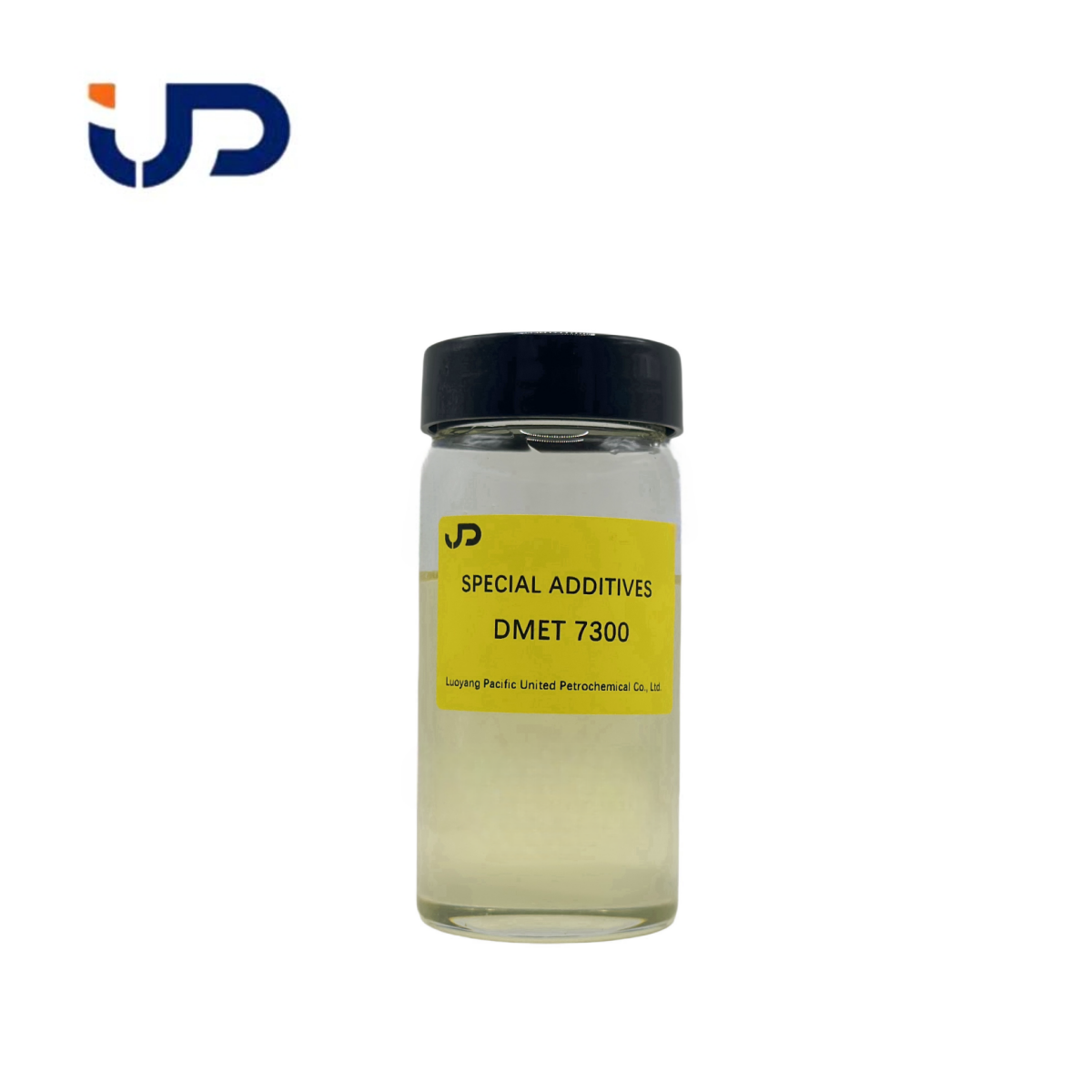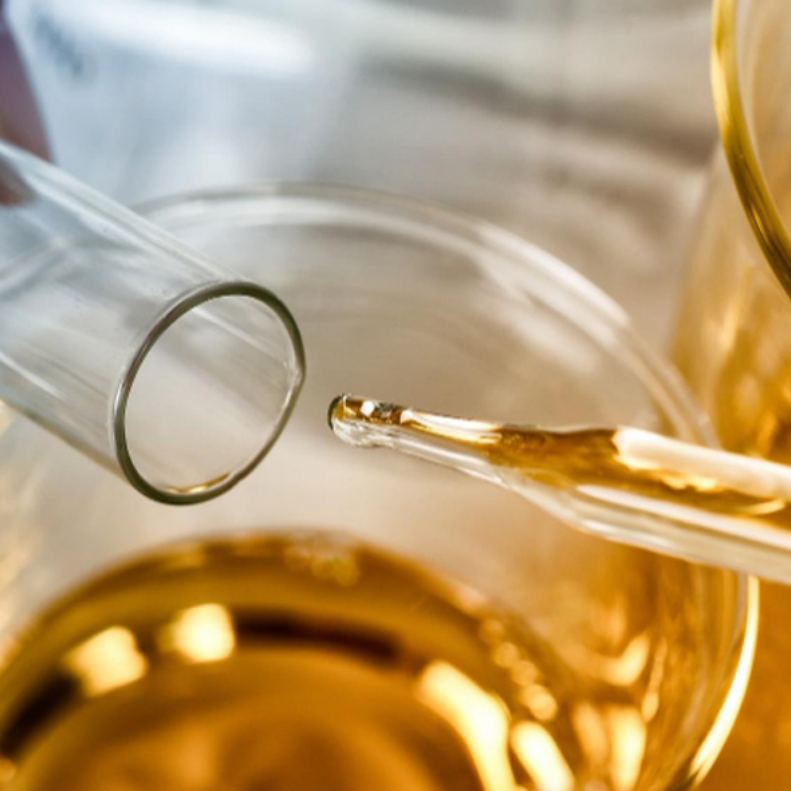UNP Chemicals Special additives include seal expansion agent, demulsifiers and defoamers, which play an important role in the fields of industrial lubricants, metalworking fluids, etc. Seal expansion agents can improve the compatibility of lubricants and rubber seals, prevent seal shrinkage, and thus effectively reduce lubricant leakage. Demulsifiers are used to improve the anti-emulsification properties of lubricants, promote the separation of emulsions by changing the oil-water interfacial tension, and prevent the lubricant from failing due to emulsification. Defoamers are mainly used to suppress foam in lubricants, avoid lubrication failure and equipment wear caused by foam, and ensure the stability and lubrication effect of lubricants.
Top UNPchemicals Special Additives
Popular UNPChemicals Special additives
Sulfolane type seal expansion agent DMET 7300 CAS 18760-44-6
DMET 7300 is a Sulfolane-type sealing expansion agent that enhances the seal performance for better level.
Read More Get A QuotePhenolic resin polyether DMET A12 CAS 30704-64-4
Phenolic resin polyether DMET A12 CAS 30704-64-4
Read More Get A Quote
Special additives are unique chemical compounds designed to enhance or modify the properties of various materials, such as metals, plastics, lubricants, coatings, fuels, or polymers. These additives are added in small amounts to significantly improve a product's performance, durability, or appearance. Special additives are specifically tailored to address particular application requirements or challenges, such as extreme temperatures, high pressure, corrosion, or wear resistance.
Features of special additives
Performance enhancement: Special additives serve to improve the performance, durability, and overall functionality of materials and products, by addressing specific application needs and challenges.
Property modification: These additives modify the properties of materials, such as improving flame resistance, electrical conductivity or altering the material's appearance.
Multifunctionality: Special additives can provide multiple benefits simultaneously, such as corrosion protection and improved wear resistance.
Application versatility: They are employed in a wide range of applications across diverse industries, including automotive, industrial, aerospace, marine, and more.
Types of special additives
Some common types of special additives include:
Flame retardants: These additives decrease materials' flammability, making them more resistant to fire.
Biocides: Added to coatings, paints, and other materials to inhibit the growth of bacteria, fungi, or algae that can cause degradation.
Optical brighteners: Enhance the appearance of laundry detergents, textiles, and paper products by absorbing UV light and re-emitting visible blue light.
Conductive additives: Increase the electrical or thermal conductivity of materials by incorporating conductive particles or fibers.
UV stabilizers: Protect materials from degradation caused by exposure to ultraviolet radiation by absorbing energy from UV photons.
Hydrophobic additives: Improve the water resistance and repellency of materials, such as coatings and textiles.
Applications of special additives
Special additives can be found in a wide variety of applications, such as:
Polymer and plastic products: Enhancing material properties, such as fire resistance, durability, or UV resistance.
Lubricants and greases: Improving wear protection, friction reduction or temperature performance.
Paints, coatings and adhesives: Providing antimicrobial properties, UV protection, or flame retardancy.
Electronic components: Enhancing electrical conductivity, thermal management or corrosion protection.
Textiles: Modifying properties such as water resistance, stain repellency, or brightness.
Price of special additives
The price of special additives can be influenced by various factors:
Type: The specific type and chemistry of the special additive can impact its cost.
Quality: The purity, effectiveness, and formulation of the special additive can influence its price.
Quantity: Purchasing special additives in bulk or larger quantities may result in cost variations.
Manufacturer: Prices may differ depending on the manufacturer, their expertise, market reputation, and the quality standards they follow.
How to select special additives?
When selecting special additives, consider the following factors:
Application: Evaluate the specific application or requirements you need to address, such as enhancing fire resistance, improving conductivity, or protecting against UV degradation.
Compatibility: Ensure the chosen special additive is compatible with the materials or substrates it will be used with, and does not adversely affect the product's performance, structure, or appearance.
Performance: Choose a special additive that effectively addresses the specific challenge or requirement of the application, and provide long-lasting results.
Safety, toxicity, and regulations: Opt for special additives that meet safety standards, have low toxicity, and comply with relevant regulations and industry certifications in their intended applications.
By considering these factors, manufacturers and users can select the most appropriate special additives to address specific challenges and enhance the properties, performance, durability, and appearance of various materials and products.
Special Additives Supplier
UNPChemicals is a professional and trusted special additives supplier manufacturing high quality and range of special additives according to your workflows and products. If you are looking for high performance special additive solution, feel free to contact us.

